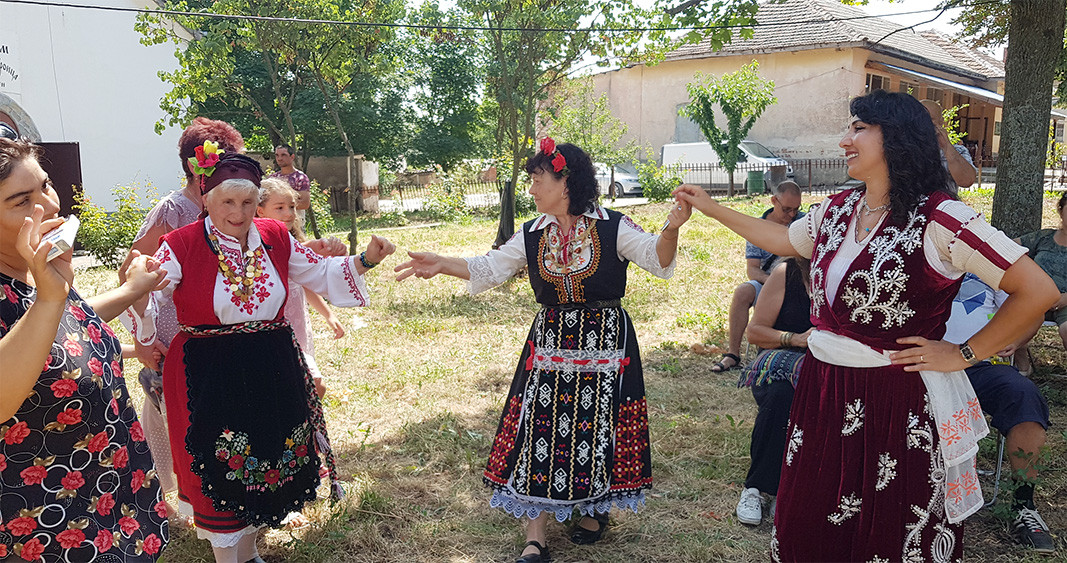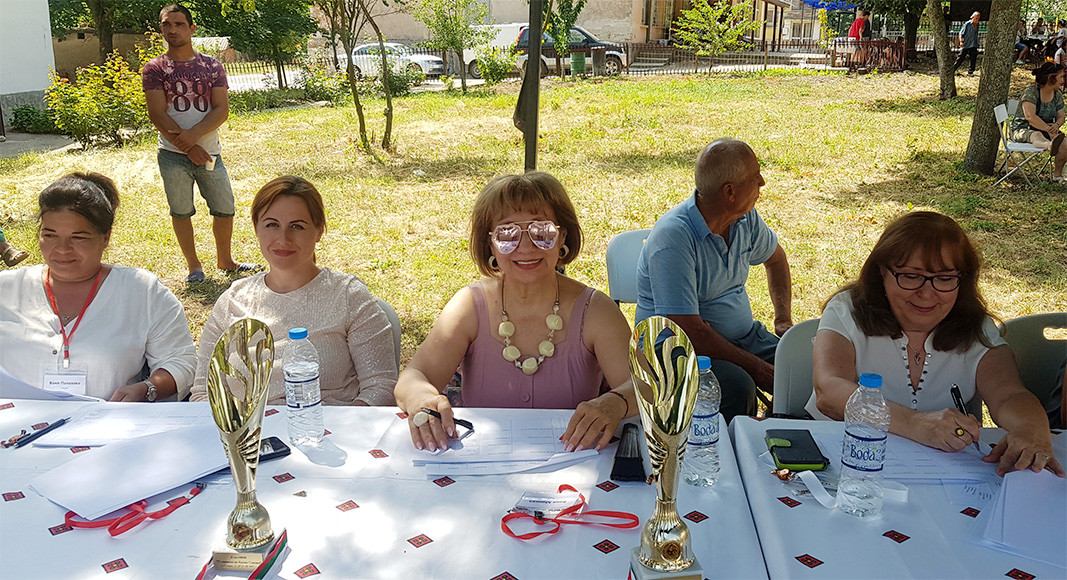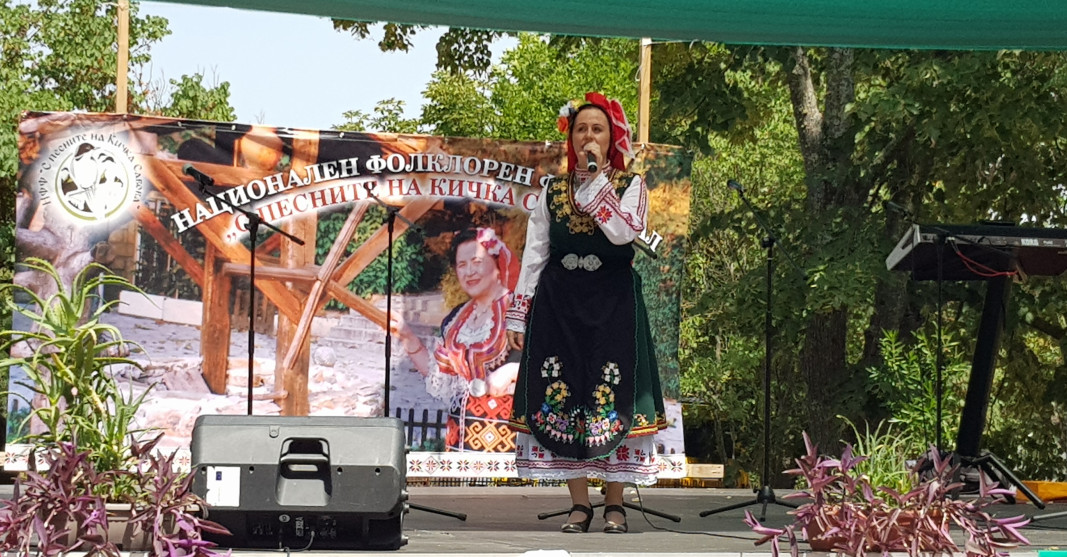"Throughout the year, the village of Sladun is like a streamlet but in the days of the festival it boils and rages like a big, full-flowing river" - this is a successful comparison of Nadia Shtergova, secretary of "Izgrev - 1928" Community Cultural Centre and a major driving force in the organization of the folklore festival "With Kichka Savova’s Songs". With the efforts of the organizing committee, the support of the Municipality of Svilengrad, the Kichka Savova Foundation and a number of other institutions and sponsors, despite the record high temperatures, the festival marked an extremely successful edition. Here is what Ms. Shtergova said for Radio Bulgaria:
"This year there were about 120 individual performers, vocal groups, dance groups, instrumentalists from all over the country - Northeastern and Northwestern Bulgaria, Rhodope and Strandzha regions, aged from 6 to 86. I would like to mention Grandpa Georgi Kurtev, who is already of a respectable age and is participating in the festival for the 10th time. The group from the village of Polkovnik Varadinovo, Smolyan region, for the 9th time travelled so many kilometers to appear on stage in the village of Sladun."

Nadia Shtergova also explains that for the first time there were participants from abroad - Hatice Merhabala, Vesile Dzebedji, Ahmed Merhabala from Çorlu, Turkey, who performed one of Kichka Savova's songs and received several special awards. She believes that when the measures against Covid-19 are lifted, more and more folk singers will arrive from nearby countries.

The jury chaired by Assoc. Prof. Dr. Natalia Rashkova from the Institute of Ethnology and Folklore with the Ethnographic Museum at the Bulgarian Academy of Sciences included Vanya Moneva, a choir conductor and a producer from the Bulgarian National Radio, who expressed her admiration for the smooth organization and the high level of participants in the festival:
"One ensemble and two performers were awarded for performing songs by Kichka Savova in the most brilliant way, which is one of the conditions for participation in the competition. These are the choir "Samodivski Ogan" from Burgas, Keranka Kostova from the village of Dyulevo, and Emilia Zhekova from Stara Zagora. The performance of Slaveyko Slavchov from the Montana region who plays the “duduk” - a folk instrument that is gradually dying out, was also remarkable. He learned how to play from his grandfather and is currently teaching several children. I was most impressed by the female and male folklore groups from the village of Radovets, the region of Topolovgrad, they received the grand prize of the National Radio - a professional sound recording that we are going to organize. Among the children, Pamela from Sliven gave a wonderful performance of a slow song by Kichka Savova, with a wonderful phrasing and intonation. And the 9-year-old Yehaya Dimitrova made an impression with her beautiful timbre and incredible maturity of performance. The most valuable thing is that some of the songs that were performed have never been recorded and are unknown even to experts.”

During the festival, the folk singer Darina Slavcheva, a member of the jury and a student of Kichka Savova, selected six children with whom she will hold a master class in Plovdiv as a reward for their good performance. There were awards from sponsors, from the mayor of the village of Sladun, from the municipality of Svilengrad, from the Kichka Savova Foundation. I was amazed by the place where this large-scale festival is held - the village is only a few kilometres from our border with the Republic of Turkey, it has a hundred inhabitants, and everything was organized in the best way. It was a beautiful holiday for Bulgarian folklore”.
English version Rositsa Petkova
Photos: Sevda Ducanci
In the middle of August in Kyustendil, Southwestern Bulgaria, the "Panagia - Raising of the Bread" holiday takes place. The holiday is directly related to the church holiday "Assumption of the Blessed Virgin Mary", marked on August..
A three-day embroidery festival takes place in the square of the village of Vardim near Svishtov, the organizers reported. At its core, the festival promotes a particularly colorful part of our lifestyle and traditions -..
Fans of Bulgarian folklore are getting together in the village of Ribaritsa near Teteven on 20 and 21 July for the 3 rd national festival and the 16 th edition of the festival of folklore of national customs and authentic traditional costumes in a..
The Roma community in Bulgaria is celebrating Vasilyevden /or Vasilitsa, Bango Vasili (literally the Lame Vasil)/, also known as the Roma New Year ,..

+359 2 9336 661
